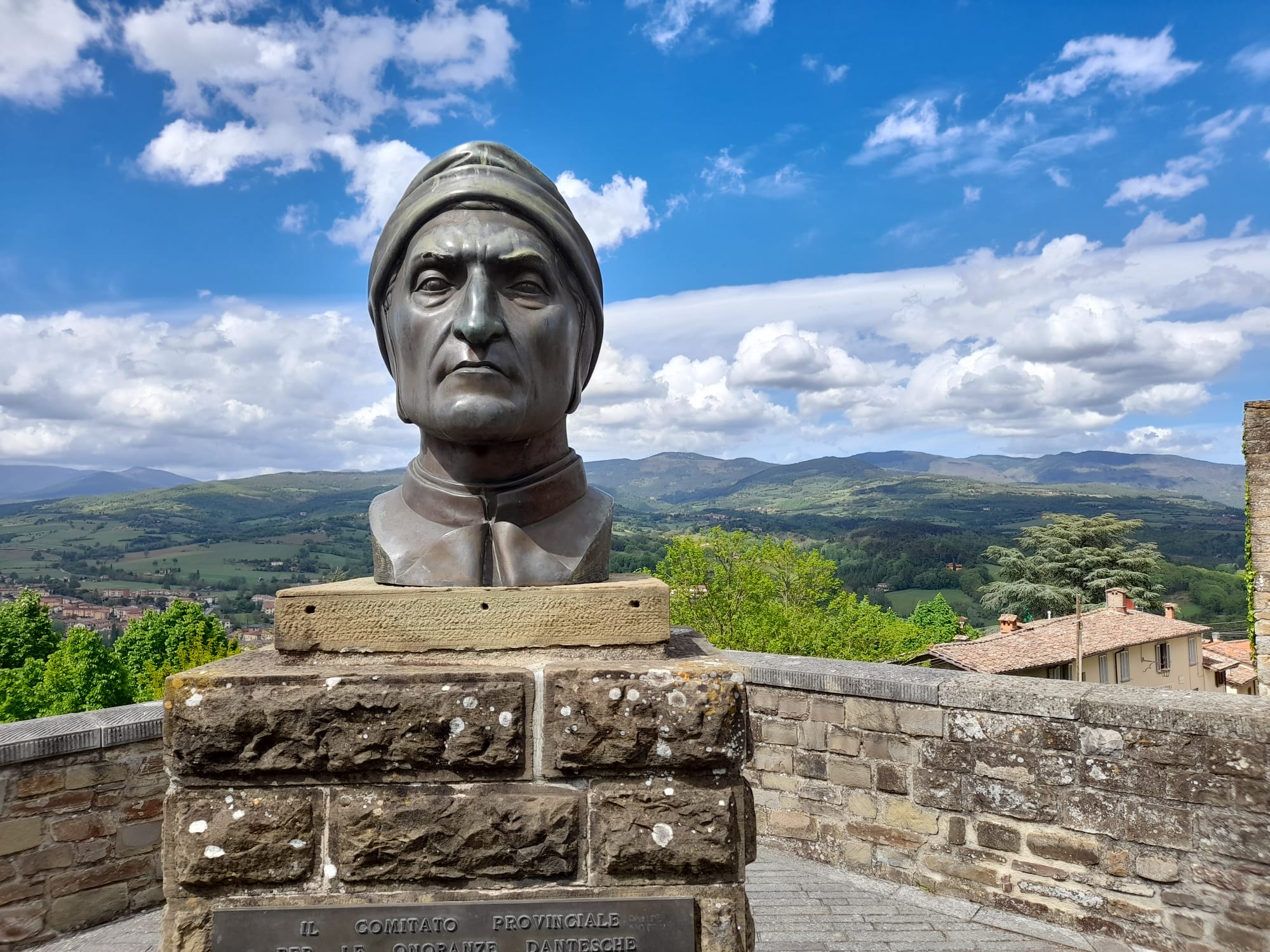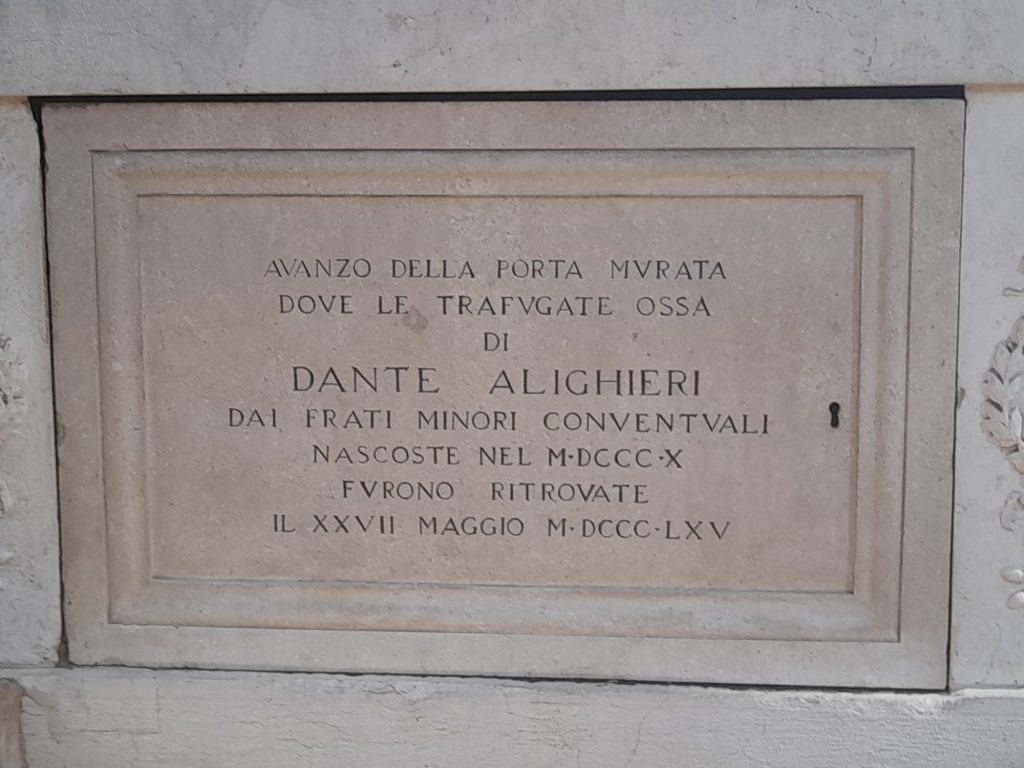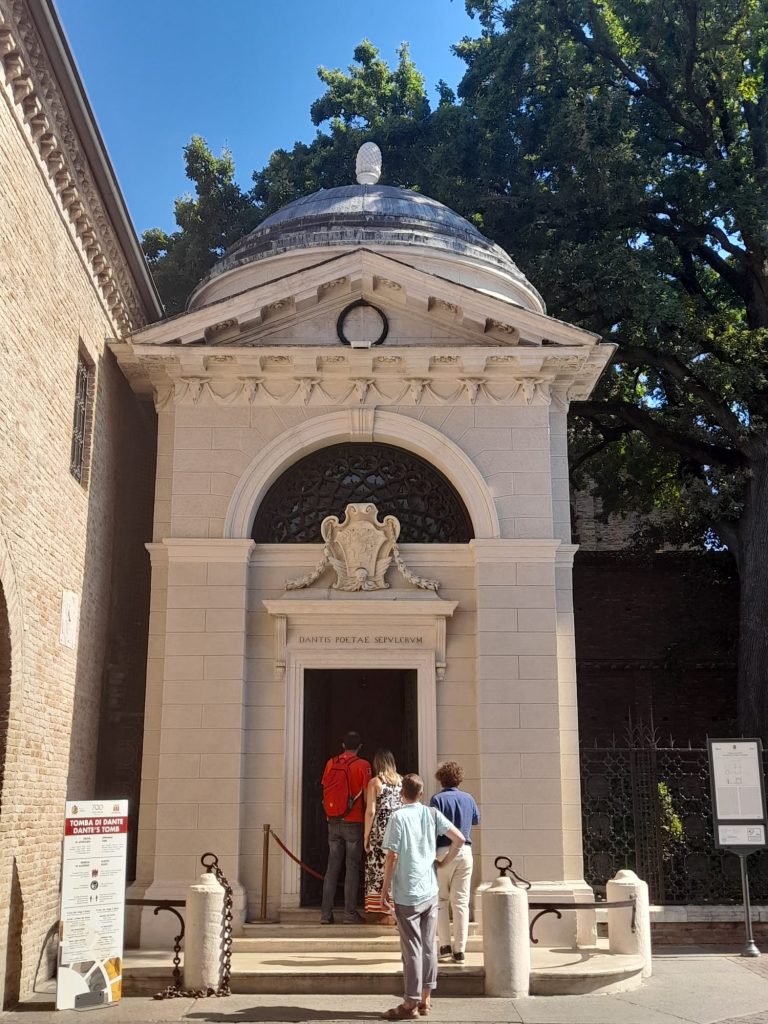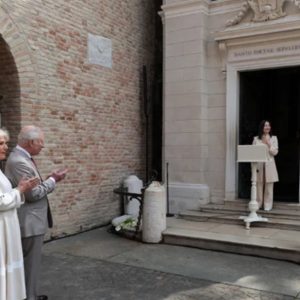Dante Alighieri, Italy’s most celebrated poet, died in exile in Ravenna on 14 September 1321. More than 700 years later, his presence continues to shape Italian culture. This week it forms part of a royal itinerary as the King and Queen visit Dante’s tomb.
King Charles III and Queen Camilla will visit Dante’s tomb during their state visit to Italy, where they will also mark the 80th anniversary of Ravenna’s liberation from Nazi occupation. The visit connects Britain’s royal family to one of Italy’s greatest literary figures.
Dante spent his final years in Ravenna under the protection of Guido Novello da Polenta. He had been exiled from Florence in 1302 and never returned. During those final years, he completed The Divine Comedy, a work that helped standardise the Italian language and redefine European literature.
After his death, Dante was buried in a simple tomb beside the Basilica of San Francesco. Florence later tried to reclaim his remains, but the Franciscan friars hid them in a wall. The bones remained concealed until 1865, when they were rediscovered during restoration work.
Today, Dante rests in a neoclassical monument built in 1781 and known locally as la tomba di zucchero – the sugar bowl – for its domed roof and bright façade. A lamp burns inside the tomb, kept alight with olive oil donated annually by Florence as a gesture of reconciliation.
The royal visit is expected to shine a spotlight on Ravenna and its links to Dante. It also serves as a reminder of the poet’s uneasy legacy. Though Florence honours him now, it was Ravenna that gave him shelter – and his final resting place.







